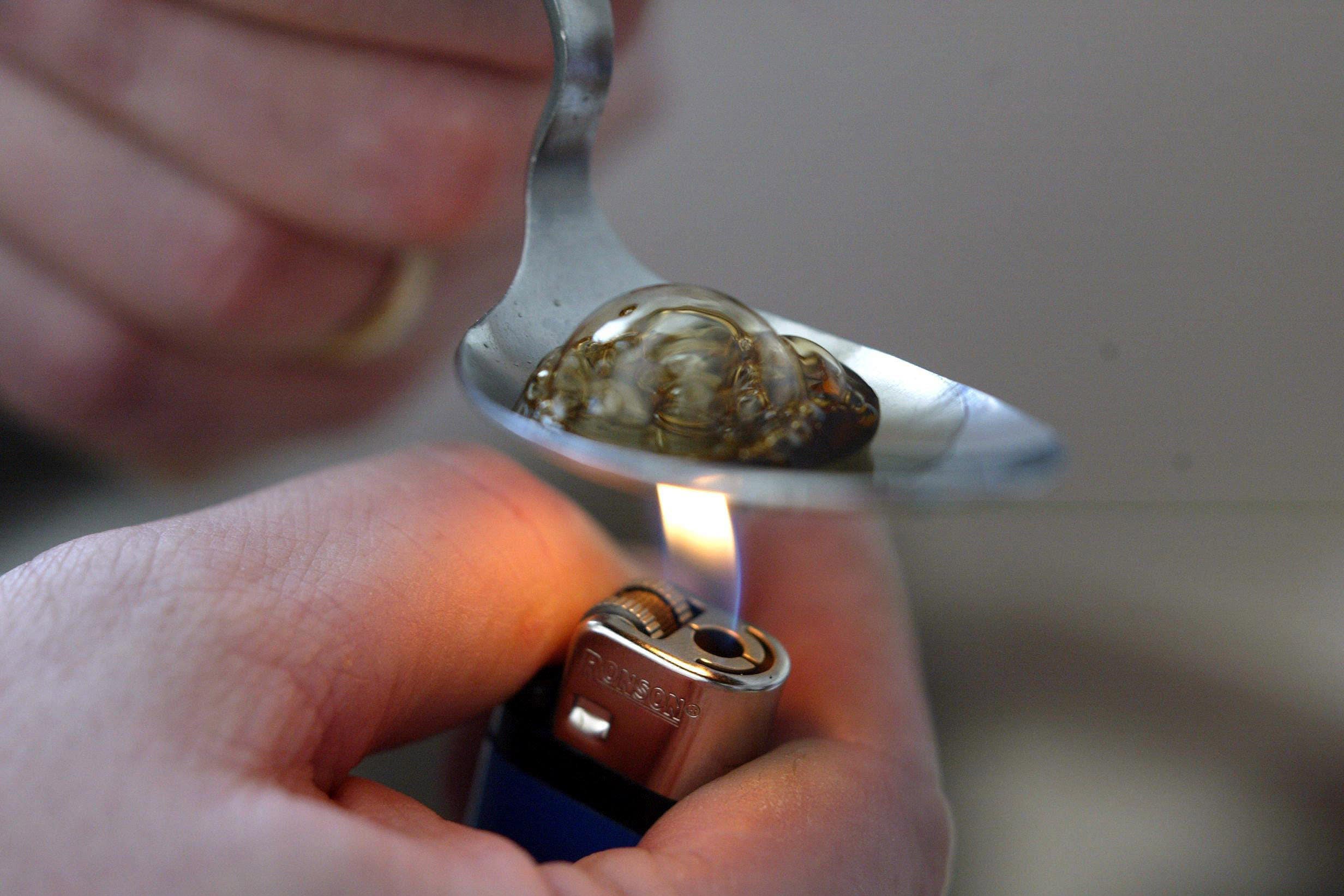Woman who lost cousin to drugs says decriminalisation calls ‘give hope’
Jolene Crawford has campaigned for change with the group Anyone’s Child following the death of her cousin Alan 15 years ago.

Your support helps us to tell the story
From reproductive rights to climate change to Big Tech, The Independent is on the ground when the story is developing. Whether it's investigating the financials of Elon Musk's pro-Trump PAC or producing our latest documentary, 'The A Word', which shines a light on the American women fighting for reproductive rights, we know how important it is to parse out the facts from the messaging.
At such a critical moment in US history, we need reporters on the ground. Your donation allows us to keep sending journalists to speak to both sides of the story.
The Independent is trusted by Americans across the entire political spectrum. And unlike many other quality news outlets, we choose not to lock Americans out of our reporting and analysis with paywalls. We believe quality journalism should be available to everyone, paid for by those who can afford it.
Your support makes all the difference.A woman whose cousin died as a result of drugs has said decriminalisation proposals put forward by the Scottish Government could “prevent more families from experiencing the heartbreak of losing a loved one”.
Jolene Crawford, whose cousin, Alan, died 15 years ago, said the recent announcement from the Scottish Government that it wanted to decriminalise the possession of drugs for personal use had given her family “hope for the first time”.
Home Secretary Suella Braverman has already rejected the move, put forward by Holyrood ministers last month, saying it risked causing “untold damage”.
But Ms Crawford, speaking after new figures showed a record fall in Scottish drugs deaths, said the change could help “break the cycle of drugs and misery”.
The recent support in Scotland for decriminalising drugs gives our family hope for the first time
She spoke out after figures from National Records of Scotland showed there were 1,051 deaths due to drug misuse in Scotland in 2022 – a drop of 279 from the previous year and the lowest total since 2017.
Ms Crawford, a member of the campaign group Anyone’s Child, which is calling for changes to drugs laws, said, however, that Scotland was still the “drugs death capital of Europe”.
Speaking in the wake of the latest figures, she said: “Behind each number is a real person, who once had hopes and dreams – as did my cousin Alan.
“It’s been 15 years since his death and Scotland remains the drug death capital of Europe.
“The recent support in Scotland for decriminalising drugs gives our family hope for the first time because it would break the cycle of deaths and misery by making drugs a health matter, not a criminal issue.
“Legalising and regulating drugs would take the market out of organised criminal hands, reduce the violence, make our streets safer for everyone and, hopefully, prevent more families from experiencing the heartbreak of losing a loved one.”
Alex Feis-Bryce, the CEO of Transform Drug Policy Foundation, said while the fall in Scotland had been “hugely reassuring” drug deaths numbers were “still far too high”.
He added that “each one of these deaths is an avoidable tragedy” as he called for a “transformative approach to really reduce the deaths”.
Mr Feis-Bryce said: “Westminster must allow Scotland to pilot proven measures like overdose prevention centres where no one dies from overdoses, decriminalising people with drugs for their own use, like in Portugal, and exploring legal regulation of drugs to make the market safer.”
He urged all political parties to “urgently put aside point-scoring and come together to deliver a public health approach”.
But commenting on the “heart-breaking figures”, Scottish Conservative leader Douglas Ross said while “some progress is being made from an utterly catastrophic base, Scotland’s appalling fatality rate means we remain the drugs-death capital of Europe by an enormous and alarming distance”.
He called on the Government to back his Right to Recovery Bill, which he said would enshrine in law the “right of everyone to receive a recovery programme tailored to their needs”.
Challenging ministers to act, Mr Ross said: “If they are ever to get fully on top of a crisis which shames the nation, they must stop talking about decriminalisation of drugs and finally embrace the Right to Recovery Bill.”
Scottish Labour health spokeswoman and deputy leader, Dame Jackie Baillie said: “The fact that we are still seeing such shockingly high levels of drug deaths in Scotland is a national tragedy.
“That progress is being made is welcome, but for many it will be too little too late.
“In 2019, the SNP declared this a public health emergency but much of what has been done is simply unpicking the damage of years of SNP cuts to drug and alcohol treatment.
“With drugs deaths in Scotland nearly three times higher than in the rest of the UK, there can be no delay in acting to protect lives.
“Still today we are seeing nearly the people die every day in Scotland due to drugs.”
And Scottish Liberal Democrat leader Alex Cole Hamilton said that the “drug deaths crisis is a plague of the SNP’s own making”.
He criticised the Scottish Government for previous cuts to the budget for drugs services and added: “My party has been calling for the decriminalisation of drug misuse for years.
“If the Scottish Government is at last serious about reform in this area, this will take detailed work both here in Scotland and in partnership with colleagues across the UK and beyond.
“To finally turn a corner in this crisis, Scottish Liberal Democrats also want to see the immediate introduction of specialist drugs commissions, safe consumption rooms and greater support for both staff and services.”